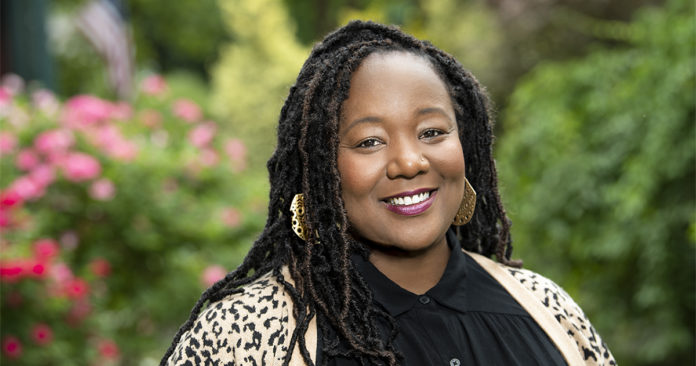
Why is diverse cultural representation important to you?
It is important to have art and culture that reflects our actual community and our larger world. The world isn’t hegemonic, so neither should art and culture be.
What made you interested in curating events for Penn Live Arts?
The opportunity to curate film at Penn Live Arts has been an exciting one, as we need more repertory film spaces in the city. I was interested in Penn Live Arts as it’s an incredible nexus of students, professors, and the larger community.
What is the concept or vision behind BlackStar Projects?
BlackStar focuses on work by filmmakers who represent the global majority but whose voices are often marginalized or suppressed in the so-called Western world and in this United States, specifically. Our mission is to uplift film and video work by Black, brown, and Indigenous artists from all over the world. We do this via our flagship film festival as well as with our journal Seen, our podcast Many Lumens, our filmmaker seminar, exhibitions, and the Philadelphia Filmmaker Lab.
What role do you think media plays in cultural representations?
Media is our dominant form of cultural expression at present and is one that permeates our consciousness because it hits so many senses at once. It also shapes how we see ourselves and others, which is why it is important to have a diversity of representation.
What progress have you seen in promoting diverse cultural representations? What still needs to be done?
There’s so much to be done! To borrow from my former boss Amy Sadao, the former ICA director, in this country we’ve had 300 years of white men as the dominant voice, so we could use 300 years of other folks getting a chance to see their stories and experiences centered.
How would you describe the films of Isaac Julien?
Isaac Julien’s work is experimental, political, and aesthetically rigorous. Because of this, they are deeply compelling. The entire series has shown us that even work made 30 to 40 years ago is still relevant as our society is still grappling with issues of police brutality, structural racism, xenophobia, and queer erasure.
Who should watch the films?
Everyone!
What are some trends among higher learning institutions to promote diverse experiences and learning, especially through visual arts and filmmaking?
I think many mainstream institutions have been grappling with questions of diversity and representation as an aim to ‘do better’ and be anti-racist due to the uprisings of spring 2020. This grappling is overdue, but it is also needed.
What can we expect next from PLA in the rest of the year, in terms of film programming?
In collaboration with [Penn Live Arts Executive and Artistic Director] Chris Gruits, we are working on presenting programming that engages with the performing arts calendar, and that also brings some special screenings that we don’t think will otherwise be presented in Philadelphia.







